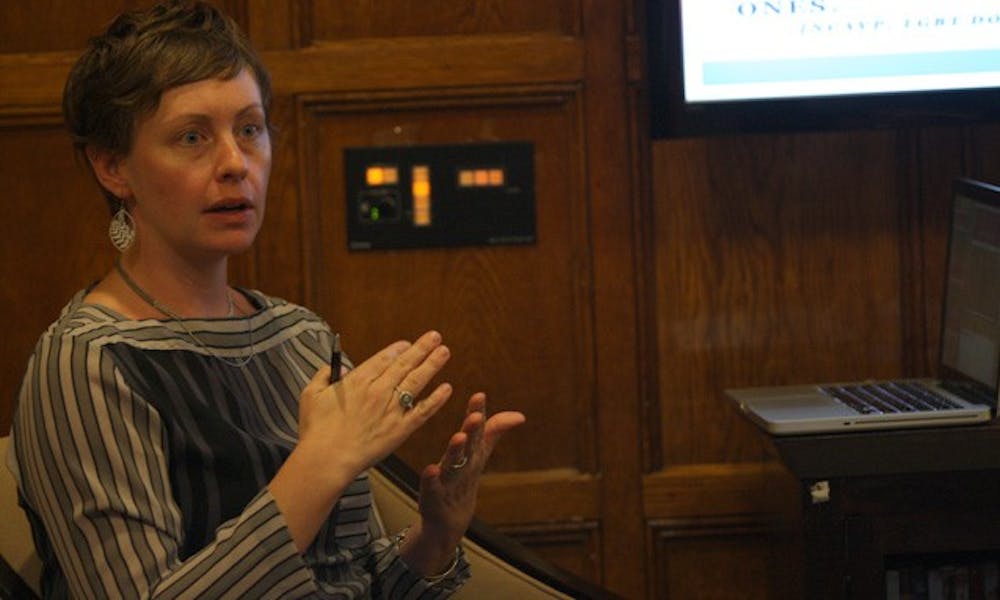Participants in a discussion about dating violence co-sponsored by the Women’s Center and the Office of Fraternity and Sorority Life emphasized the need for awareness of sexual violence on campus.
Amy Cleckler, coordinator for the Women’s Center’s gender violence prevention program, led the event, which sought to define and suggest methods to prevent sexual violence—especially dating and intimate partner violence.
“I’m very interested in this topic as a woman who works very closely with... victims and perpetrators of dating violence,” said Zoila Airall, assistant vice president for student affairs for campus life.
Cleckler defined sexual violence as “a pattern of abusive and controlling behavior that is used by one partner to gain or maintain power and control over a current or former intimate partner.”
Because it encompasses a range of behaviors—from verbal harassment to stalking and physical assault—sexual violence needs to be combated with a program that is flexible in response and scope, Cleckler said.
Currently, Duke has four resources for students wishing to talk about sexual violence confidentially: the Women’s Center, Student Health, Counseling and Psychological Services and religious chaplains. Other agents of the University, such as resident advisors, graduate residents, faculty and staff are all obligated to report incidents to the Office of Student Conduct.
In addition to defining sexual violence and identifying resources that can be used to seek help, Cleckler also offered intervention strategies. In the Spring, the Women’s Center will lead a new initiative to encourage students to take action. Through peer education programs, students will be trained to intervene in cases of sexual violence, Cleckler said.
“The inaction of bystanders contributes to a culture of violence,” she said. “If the story of the victim isn’t told, the wider community is hurt.”
To minimize sexual violence, Cleckler aims to build a community that respects personal boundaries, secures sexual consent and communicates honestly in relationships.
Cleckler said the current state of sexual violence prevention programs is somewhat misdirected.
“Traditional programs have put everyone on the defensive, calling women potential victims and men potential perpetrators,” she said. “We need to change this culture of fear.... You have a responsibility to protect your peers just out of virtue of being a member of the Duke community.”
Greek chapter advisors were invited because of a national study which found that while intoxicated, sorority members were three times more likely to be sexually assaulted than non-greek women, Cleckler said. The problem of sexual violence, however, is not limited to greek life.
“Working with women of [Kappa Alpha Theta] for the last seven years, I know that dating violence happens,” said Amy Lingenfelser, advisory board chairman for Kappa Alpha Theta. “I’d like to have the tools to know what to do when that happens. I’d like to offer those women some solace.”
Get The Chronicle straight to your inbox
Signup for our weekly newsletter. Cancel at any time.

